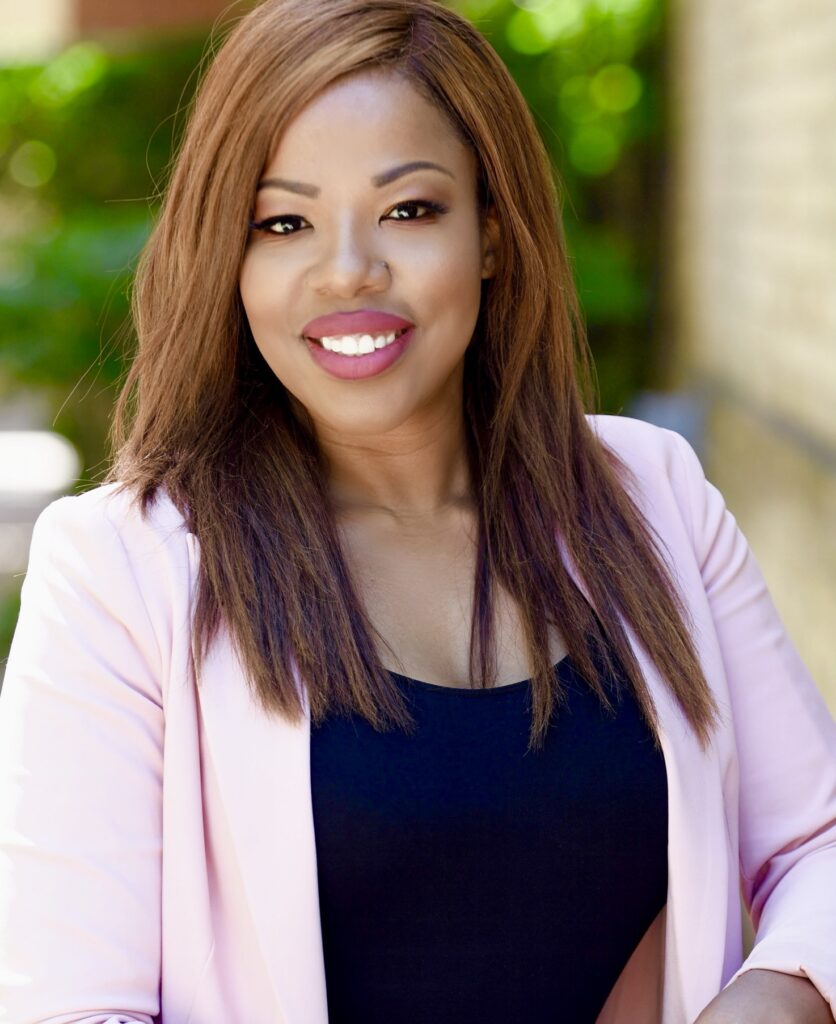This Black History and Futures Month, we are spotlighting and celebrating our Black team and community members from across the organization as part of our We are Women’s series.

Name: Rhonelle Bruder
Pronouns: She/Her
Title & Department: Ph.D. Research Trainee, Women’s College Research Institute
On the WCH team for: Addressing Sex Trafficking Through Education and Research (ASTER)
1. Where were you born? If you were born outside of Canada, when did you come to Canada?
I was born in St. Vincent & the Grenadines, a tiny island country in the Caribbean with a population of just over 100,000. St. Vincent is situated between St. Lucia, Barbados, and Grenada and is probably most widely known for its magnificent white-sand beaches. At age three, I was adopted, moved to Canada, and experienced a culture shock. Although I don’t remember, my mom reminds me how I was frightened and fascinated the first time I saw snow outside. I spent most of my childhood in London, about 2 hours from Toronto, but I moved to the city in my teens and have mostly lived here since.
2. Why did you choose to work at Women’s College Hospital?
As a world leader in health for women and health equity, Women’s College Hospital has always been the premier destination for clinicians, scientists, and healthcare professionals focused on revolutionizing women’s health. That is why I was ecstatic to join the Addressing Sex Trafficking Through Education and Research (ASTER) team led by Dr. Du Mont and Dr. Mason at Women’s College Hospital, Women’s College Research Institute as a Ph.D. Research Trainee. Through this work, I have collaborated with a team of psychologists, social workers, nurses, and public health specialists dedicated to improving health services for sex-trafficked women. Further working at Women’s College Hospital has provided me with many additional learning and professional opportunities that have helped enhance my doctoral studies and my advocacy to raise awareness on the issue of sex trafficking in Canada. It’s been a great pleasure being part of an amazing team at Women’s College Hospital dedicated to building a healthier and more equitable world.
3. How has your Black heritage influenced your work in healthcare?
As a Black Canadian of Caribbean descent and Ph.D. student in Social and Behavioural Health Sciences at Dalla Lana School of Public Health at the University of Toronto, I recognize the necessity to dismantle the anti-Black racism and structural oppression experienced by Black Canadians. That is why my dissertation research will apply intersectionality theory to examine both the experiences and knowledge of healthcare providers and survivors of human trafficking to understand how socio-structural inequalities and power dynamics stemming from social identities can increase vulnerability to exploitation and impact the ability to access services and the quality of the care provided. My hope is that my research will lay the essential groundwork to improve equitable health services for sex-trafficked women and contribute to the creation of survivor-centred, trauma-informed, inclusive health services.
4. Who is your Black mentor or role model? Why?
I’ve been fortunate to have many Black mentors throughout my professional career, most recently as a participant in the Collaborative Specialization in Women’s Health led by Dr. Janice Du Mont at Dalla Lana School of Public Health. The collaborative specialization provides opportunities for students to interact with and be mentored by senior academics engaged in women’s health research. My mentor, Dr. Notisha Massaquoi, is an Assistant Professor, Department of Health and Society at the University of Toronto, Scarborough; a leading Canadian scholar investigating anti-Black Racism, health equity, and health disparities; and the former Executive Director of The Women’s Health in Women’s Hands, the only community health centre in Canada specializing in primary healthcare for racialized women. As a mentee, Dr. Massaquoi has provided me with invaluable knowledge and insight through my professional journey and guided me through some challenges I have faced. Dr. Massaquoi is an inspiration to me and many others, and I’m grateful for the opportunity to learn from her vast knowledge of equity, race, and women’s health.